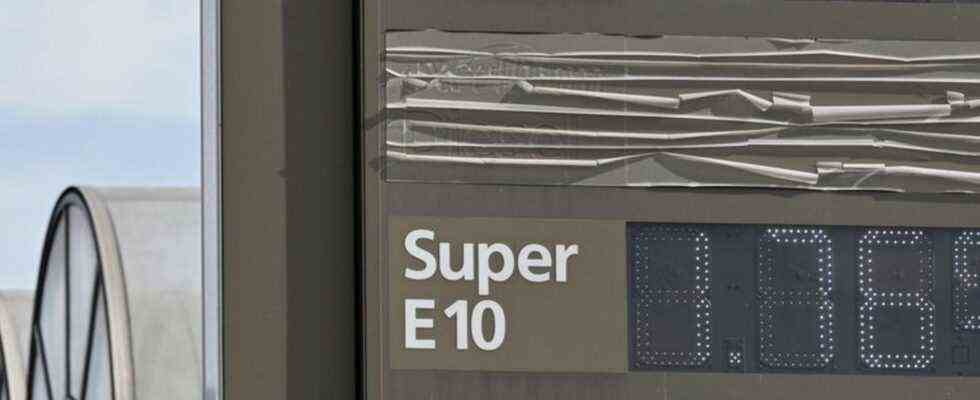traffic
Diesel price in Germany climbs to an all-time high
The prices for the various fuels are displayed at a petrol station. (Archive image) Photo: Harald Tittel / dpa
© dpa-infocom GmbH
Rising oil prices have been driving costs at the pump for months. Now Diesel has broken its nine-year-old price record. And the peak for premium gasoline is not far away either.
The journey to the gas station is becoming more painful for millions of drivers from week to week. Diesel is now more expensive in Germany than ever before.
In the nationwide daily average on Sunday, the price was 1.555 euros per liter, as the ADAC announced on Monday. This slightly exceeded the previous record of August 26, 2012. Petrol is also approaching its peak: Super of the E10 variety was 1.667 euros per liter on Sunday. This means that only 4.2 cents are missing from the record on September 13, 2012.
The fuel prices have been rising for months. The main driver is the oil price. It is picking up with the recovery of the economy after the corona shock and has roughly doubled within a year. Investors worry about insufficient supply before the winter months. The North Sea variety Brent, which is important for Europe, was at times more expensive on Monday with prices around 86 dollars per barrel (159 liters) than it has been for three years.
Demand for heating oil
In the case of diesel, the increase is also reinforced by the high demand for heating oil that is typical of autumn. Since the beginning of the year, the carbon dioxide price of 25 euros per ton has resulted in an additional surcharge of around 6 to 8 cents per liter including VAT.
The development is particularly drastic if you compare it with the previous year. At that time, oil and fuel prices had reached lows due to the corona crisis before the trend reversal occurred at the beginning of November 2020.
The price spiral is also causing political debates. A large part of the fuel price at the petrol pump is made up of mineral oil tax, VAT and the price of CO2: At the current price level, this amounts to around 78 cents per liter for diesel, and between 97 and 98 cents for premium gasoline.
State intervention unlikely
However, the current federal government sees little opportunity to influence the level of fuel prices. They depended on wholesale prices, said a ministry spokeswoman on Monday. “Intervention by the state is not only not common, it is also not legally possible.” Nevertheless, Federal Minister of Economics Peter Altmaier (CDU) would like to reduce the burden on households with low incomes. So he proposed to cushion the price increase with a higher housing benefit. In addition, the EEG surcharge for promoting green electricity will decrease in the coming year.
Altmaier had already indicated at the end of last week that a relief package could be decided quickly in parliament if that was what was wanted. The new Bundestag will hold its constituent session on October 26th. The minister announced talks with the political groups that are currently talking about the formation of a new government. He is unlikely to be in office for much longer. The SPD, Greens and FDP have announced that they will complete their government formation before Christmas.
Transport Minister Andreas Scheuer (CSU) has already called on Finance Minister Olaf Scholz (SPD) to provide short-term financial relief for citizens and companies. “This serves our common approach that mobility in our country must remain affordable,” he wrote in a letter to the Vice Chancellor. If the normal petrol price should exceed the 2 euro mark this year, that would no longer be acceptable for many people. However, experts consider it unlikely that this limit will be exceeded in the short term.
ADAC warns
In connection with the ever increasing fuel prices, the ADAC warns against overburdening the population. “I hope – and in view of the current increase in fuel prices, I assume that an even faster increase in CO2 prices is off the table,” said ADAC traffic president Gerhard Hillebrand in the direction of the coalition talks between the SPD, the Greens and the FDP. “The negotiating parties must also think of those people who have so far had no alternative to fossil-powered cars.” In particular, people in rural areas who have to travel long distances to work should be relieved from the flat-rate distance allowance.

